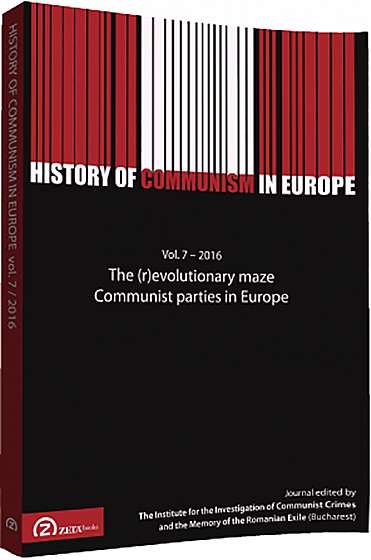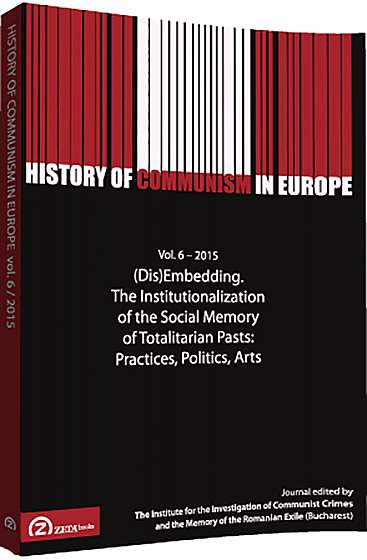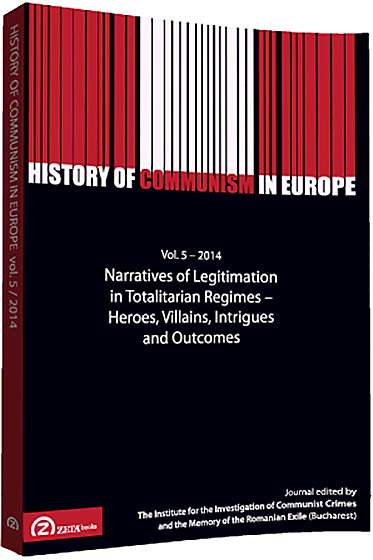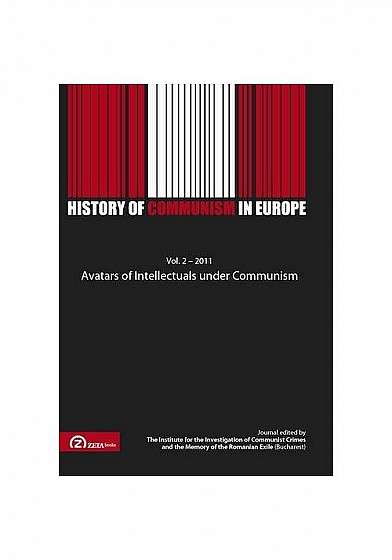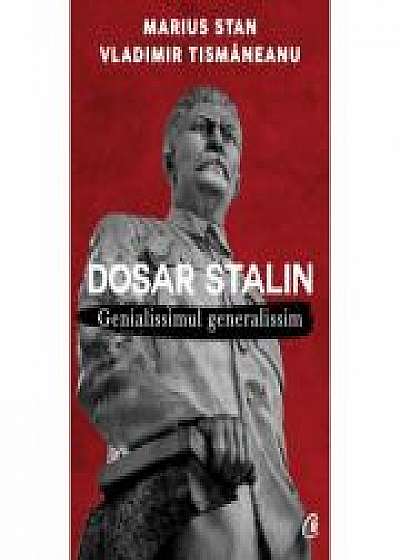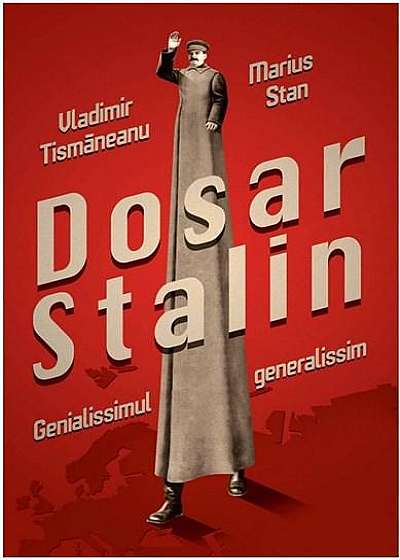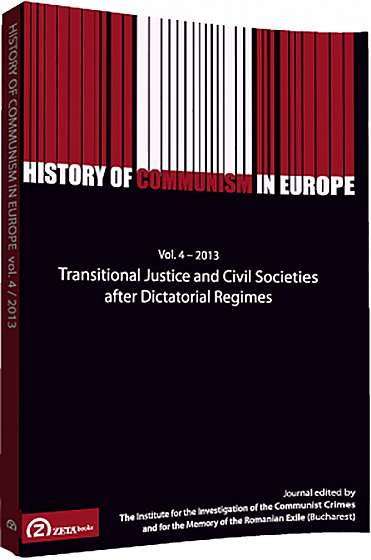
History of Communism in Europe: Vol. 4 / 2013
Descriere
Table of Contents I. Argument Dalia BATHORY: Transitional Justice. Between Political Myth and Civil Society RealityAbstract: Transitional justice emerged as a working concept from the need to clarify the relationship between victims and perpetrators and the latters’ guilt, after the collapse of abusive regimes in Africa, Latin America and Eastern Europe. Since 1995 it has been defined in many ways, by many scholars, according either to its means and goals or to its actors. It has become a very broad concept, describing actions of justice, reparation, search for the truth and reform. While transitional justice policies should result in giving more coherence to a shuttered society, there are at least two threats that must be taken into consideration. One is to transform it into a political myth, by allowing the political factor to confiscate it, the other is to expand its area of concerns in order to cover aspects of daily social problems. The role of the civil society is very important to limit these threats, although what it is that we name “civil society” is still under scholarly debate. The analyses published in this issue of History of Communism in Europe cover these problems in their case studies which come from Latin America or the former Soviet bloc. Most of them stress on the very important role the grassroots actions of members of civil society have on “settling accounts” with the past, actions that seem to be born out of the inefficient “official” measures taken at state level.
II. Transitional Justice – Practice and Theory Csaba VARGA: Transitional Justice. Philosophical Foundation and Constitutional Rejection in Hungary Abstract: There are internationally set criteria that apply in the case of a legacy of grave and systematic violations of human rights, generating obligations of the state towards the victims and society. They specify: (1) a right of the victim to see justice done, (2) a right to know the truth, (3) an entitlement to compensation and nonmonetary forms of restitution, as well as (4) a right to reorganized and accountable institutions. Facing the complete failure of implementing the first three points, one can claim that none of them has been fulfilled in Hungary since the fall of Communism, almost one quarter of a century ago. This paper analyses the context in which constitutional adjudication may confront certainty of law with the very idea of justice by putting an end to any progress of leaving the legacy of Communism behind. As a consequence, the Rule of Law becomes a mere simulacrum.
III. Transitional Justice at Grassroots: Narrative as a Cure for the Broken Social Fabric Andreas HEMMING: Justice of another Kind. Laying Claims to the Past in Post-Dictatorial Albania Abstract: More than twenty years after the collapse of the totalitarian regime in Albania, the archives of the state security apparatus (Sigurimi) have yet to be opened. The horror of the Hoxha regime remains under lock and key. Not one word is lost on the network of political prisons and the state security apparatus in the history schoolbooks; in today’s only history text about Albania written by a university scholar, that addresses some details of the socialist period, this part of the socialist past is also left out. The lack of initiative from the government or any other state organisation to address this situation has led to setting up a number of alternative civil society organisations that focus on this issue. One of these is a very important movement in northern Albania, having at its core a disparate but vibrant publishing industry that provides space for the local actors to publish their memories and experiences. Two genres of writing can be identified here: local histories and family histories. Common to both are motifs of local patriotism and personal sacrifice, but the local histories – mainly of specific villages and towns – tend to be apologetic of the regime while the family histories tend more often to be those of victims and opponents of the regime.
Olivera SIMIĆ: Healing the Wounds of Past: Ex-Combatants Live in Belgrade Theatre Performance “Tanatos” Abstract: This paper addresses the organised civil society efforts to bring ex-combatants into the public sphere in Serbia, and investigates the potential for constructive use of ex-combatants’ war experiences in theatre. By staging the theatre performance Tanatos, the Group “Hajde da...” (the Group) from Belgrade aims to challenge negative views of this category of the Serbian population. So far, ex-combatants have been largely ignored, and as such, their capacities for contributing to transitional justice processes in the Serbian community have been neglected. Not only does the Tanatos bring four ex-combatants onto the stage to share their combat-related experiences with an audience, but it also gives the audience an opportunity to meet the ex-combatants after the performance in an open 'question and answer' session. As a qualitative case study, the paper draws from multiple sources: direct observation of the theatre performance in Belgrade in 2011, documentary research and fieldwork in Serbia undertaken during the summer of 2013, analysis of internal documents produced within the Group, and an interview with the dramaturge of the performance. The paper concludes that through Tanatos, the Group has opened public space for a dialogue about the recent past that acknowledges ex-combatants as an important factor in transitional justice processes in the region.
Rebekah PARK: Remembering Resistance, Forgetting Torture: Gender and Agency in Former Political Prisoners’ Oral History Narratives in Postdictatorial Argentina Abstract: This paper focuses on how thirty-nine former political prisoners in Córdoba, Argentina spoke about their compromiso (political commitment) to a leftist, socialist-leaning political project during the Cold War. After being imprisoned in the 1970s and 1980s and then marginalized after being freed, they began to formally record their stories in the mid-2000s as part of their political activism. In these thirty-nine oral history narratives, collected in 2008 and 2009, women, by and large, spoke about personal experiences in clandestine detention centres, while the men focused on Argentina’s broader history of social and labour movements. This paper theorizes that men interviewed in this study speak about values of solidarity and resistance in broad historic-social terms, while their women counterparts focus on personal experiences; in this regard, men and women both focus on the most salient, and available, site of political commitment for their respective genders. Identifying such a distinction between the stories told by male and female survivors is relevant for the ways in which Argentina’s history is told in memorialized spaces, encouraging curators, historians, and archivists to make use of both personal narratives as well as the broadly historical ones, and is crucial to understanding how acts of resistance and solidarity were gendered, even though social transformation is assumed to be “gender-neutral.”
Camelia RUNCEANU: Le «procès du communisme» et les formes de la rhétorique de l’«anticommunisme» dans la presse intellectuelle roumaine au début des années 1990 Résumé: Sous l’emprise de l’urgence, à la suite de la démission du communisme, des intellectuels autonomistes d’avant 1989 se mobilisent au nom de la morale. Le regroupement d’intellectuels permet de mettre en valeur le capital moral qu’ils cumulent et que certains ont obtenu avant 1989 et le volume du capital symbolique en procédant à une réévaluation du capital culturel acquis sous le communisme pour s’engager au nom des valeurs intellectuelles. L’affirmation collective des intellectuels suppose la construction d’une identité commune qui est en rapport avec l’évaluation du passé. Cet article présente une première étape dans le travail de construction d’une identité commune et de légitimation des engagements intellectuels qui consiste dans le recours à la mémoire individuelle au moment même de la restructuration de l’espace politique, et dans la formulation du « procès du communisme » comme procès « moral ». Le témoignage est une autre forme prise par le travail de mémoire qui prend une place importante dans les stratégies discursives de légitimation de la position des intellectuels, des revendications d’un rôle politique par des intellectuels consacrés sous le communisme et des intellectuels autonomistes de la période communiste. Le travail de mémoire qui nous est présenté sous diverses formes s’inscrit et fonde l’objectif principal de ces intellectuels, à savoir faire le « procès du communisme ».
IV. Book reviews Emanuel Copilaș, Geneza leninismului romantic. O perspectivă teoretică asupra orientării internaționale a comunismului românesc, 1948-1989 [Genesis of Romantic Leninism. A Theoretical Perspective over the International Orientation of Romanian Communism, 1948-1989], Institutul European, Iaşi, 2012 (Ciprian Nițu); Anne Applebaum, Iron Curtain. The Crushing of Eastern Europe 1944-1956, Penguin Books, London, 2013 (Andrei Muraru); Igal Halfin, Red Autobiographies. Initiating the Bolshevik self, University of Washington Press, 2011 (Georgiana Leșu); David Brandenberger, Propaganda State in Crisis: Soviet Ideology, Indoctrination, and Terror under Stalin, Yale University Press, 2012 (Theo Enache); Gabriel Andreescu, Cărturari, opozanţi şi documente. Manipularea Arhivei Securităţii [Scholars, opponents and documents. Handling the Securitate's Archives], Polirom, Iași, 2013 (Gabriel Zamfir); Coleen Murphy, A moral theory of political reconciliation, Cambridge University Press, New York, 2010 (Andrei Galiță).
